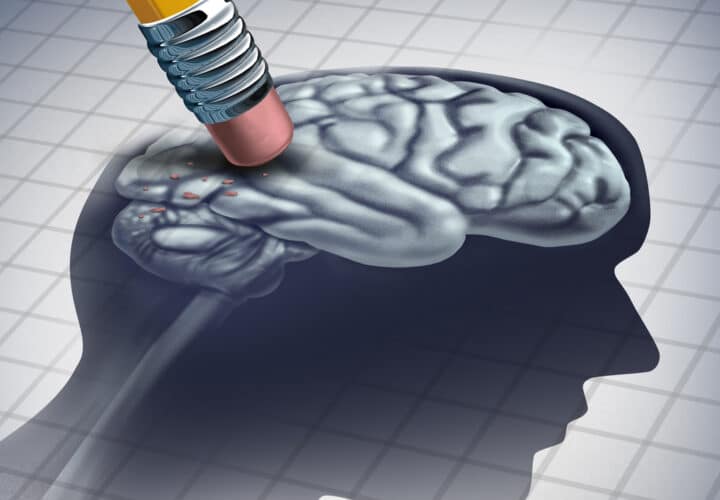New research suggests that anosognosia, or the lack of insight, is associated with Alzheimer’s pathology and increased risk of developing dementia.
Many of us have concerns about our memory that have us second-guessing what we might have brushed off in earlier years: Was losing the keys or forgetting an acquaintance’s name a moment of absent mindedness, or is it a sign of a bigger problem? There is good news for the worriers among us: A new study found that those who aren’t concerned about their own memory are at a higher risk for Alzheimer’s. Patients at risk of developing Alzheimer’s who don’t recognize their own forgetfulness are more likely to see their condition worsen over a short period of time, according to researchers at McGill University.
The condition of being unaware of medical problems due to a brain issue actually has a name: anosognosia. Many patients with Alzheimer’s have it, said study authors. And according to this research, it can hasten the onset of symptoms and dementia itself.
The study analyzed 468 people with mild memory problems who were still able to take care of themselves. They asked the participants and their close family members to fill out a survey about their forgetfulness. Older people with problems who were unaware of their memory issues were almost three times as likely to develop dementia in the next two years. What’s more, scans showed that those with little awareness of forgetfulness had more deposits of amyloid, a protein associated with Alzheimer’s, when compared to those whose assessment of their memories matched their family members.
Researchers said the findings show the importance of consulting family members when diagnosing dementia.
“People with mild memory complaints should have an assessment that takes into account information gathered from reliable informants, such as family members or close friends,” said Dr. Serge Gauthier, co-senior author of the paper and a professor of neurology at McGill.
“This study could provide clinicians with insights regarding clinical progression to dementia,” added Dr. Pedro Rosa-Neto, co-senior author of the study and clinician scientist and director of the McGill Center for Studies in Aging.
The results of the study could lead to better diagnosis procedures, enabling patients faster access to clinical trials and treatment when it becomes available.
This study was published in the journal Neurology.
